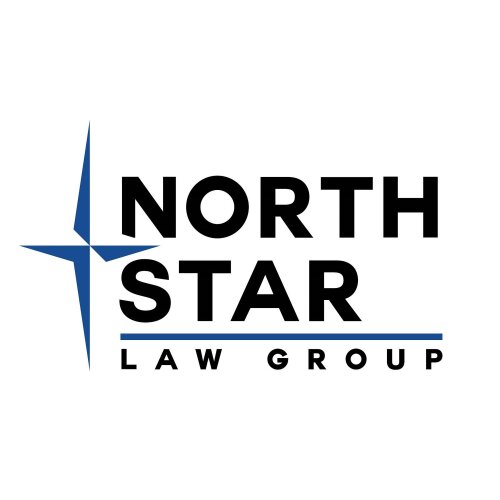Best Restructuring & Insolvency Lawyers in Anchorage
Share your needs with us, get contacted by law firms.
Free. Takes 2 min.
List of the best lawyers in Anchorage, United States
About Restructuring & Insolvency Law in Anchorage, United States
Restructuring and insolvency law in Anchorage, United States, involves the legal processes businesses and individuals use when facing financial difficulties. These laws set the rules for reorganizing debts, negotiating with creditors and, if necessary, liquidating assets to satisfy financial obligations. Whether you are a business owner or an individual consumer, understanding your legal options for managing debt and potential insolvency is critical. Anchorage follows both federal regulations, mainly the U.S. Bankruptcy Code, as well as specific local court rules and state statutes that impact how restructuring and insolvency matters are handled in Alaska.
Why You May Need a Lawyer
Legal advice is often necessary for anyone dealing with complex financial challenges in Anchorage. Common situations where you may need an attorney include:
- Filing for bankruptcy as a business or individual
- Negotiating debt restructuring with creditors
- Avoiding foreclosure or repossession of assets
- Managing collections and creditor actions
- Understanding protection rights under bankruptcy laws
- Complying with state and federal insolvency requirements
- Liquidating business assets in an orderly fashion
- Challenging or defending against claims of fraud or preferential transfers
- Ensuring fair treatment among multiple creditors
- Determining eligibility for debt relief programs
A qualified restructuring and insolvency lawyer provides guidance on the most effective legal strategies, represents your interests in negotiations or in court, and ensures compliance with all applicable laws.
Local Laws Overview
In Anchorage, insolvency and restructuring issues are predominantly governed by federal bankruptcy laws, but local practices and statutes play a significant role. Key points to be aware of include:
- Bankruptcy Chapters: Individuals typically file under Chapter 7 (liquidation) or Chapter 13 (reorganization), while businesses may consider Chapter 7 or Chapter 11 (business reorganization).
- State Exemptions: Alaska law allows certain property exemptions in bankruptcy, like a homestead exemption for homes, as well as specific protections for wages, vehicles and personal property.
- Filing Requirements: Cases from Anchorage are filed in the U.S. Bankruptcy Court for the District of Alaska. Proper documentation and adherence to local rules are essential.
- Creditor Rights: Alaska law regulates how creditors may pursue debts and protect against unfair collection practices.
- Foreclosure Process: Alaska allows both judicial and non-judicial foreclosure processes, so local timelines and procedures matter a great deal.
- Business Dissolution: The Alaska statutes outline steps for business dissolution, including creditor notification and distribution of assets.
Understanding how these laws intersect is crucial for successfully navigating insolvency and restructuring in Anchorage.
Frequently Asked Questions
What is the difference between bankruptcy and insolvency?
Insolvency means being unable to pay your debts as they come due, while bankruptcy is a legal process for resolving insolvency under the supervision of a court.
How do I know if bankruptcy is the right option for me or my business?
Bankruptcy can make sense if you cannot realistically repay your debts and need protection from creditors. A legal review of your financial situation is essential.
What types of bankruptcy are available in Anchorage?
Individuals often file Chapter 7 or Chapter 13, while businesses may file Chapter 7 or Chapter 11. Each type has unique eligibility requirements and consequences.
Will I lose my home or car if I file for bankruptcy in Alaska?
Alaska permits exemptions to protect certain property, including your home up to a set value. Exemption limits may apply, so review your situation with an attorney.
Can bankruptcy stop foreclosure or repossession?
Filing for bankruptcy typically creates an automatic stay that halts most collection and foreclosure actions. However, this stay may be lifted under certain circumstances.
How long does the bankruptcy process take in Anchorage?
A typical Chapter 7 bankruptcy may conclude within six months, while Chapter 13 repayment plans last three to five years. Complex business cases under Chapter 11 may take longer.
Are all debts dischargeable in bankruptcy?
No. Some debts, such as most student loans, child support, and certain taxes, usually cannot be eliminated in bankruptcy.
What happens to my credit score if I file for bankruptcy?
A bankruptcy will significantly lower your credit score and remain on your credit report for up to ten years, depending on the chapter filed.
What costs are involved in filing for bankruptcy?
Expect court filing fees and, if you hire legal counsel, attorney fees. Fee amounts depend on the type of bankruptcy and complexity of your case.
Do I need an attorney to file for bankruptcy or handle restructuring?
While you are not legally required to have a lawyer, the complexity of bankruptcy law and high stakes involved mean that expert legal help is strongly recommended.
Additional Resources
Navigating restructuring and insolvency issues can be challenging. Here are some helpful resources and organizations in Anchorage and Alaska:
- United States Bankruptcy Court for the District of Alaska
- Alaska Bar Association Lawyer Referral Service
- Alaska Legal Services Corporation (for qualifying individuals)
- Alaska Department of Commerce, Community, and Economic Development
- Consumer Protection Unit, Alaska Attorney General’s Office
- Local non-profit credit counseling agencies
These organizations can provide legal information, referrals, and sometimes free or low-cost assistance.
Next Steps
If you are facing financial distress or potential insolvency in Anchorage, consider the following steps:
- Gather all relevant financial documents, including debt statements, income records and contracts
- Assess the severity and urgency of your financial situation
- Reach out to a qualified restructuring and insolvency attorney in Anchorage for a confidential consultation
- Ask about your legal options, including possible non-bankruptcy alternatives
- Review and consider the potential impacts on your assets, credit and future finances
- Act proactively to avoid missed deadlines or loss of important rights
Taking early action and seeking knowledgeable legal guidance can significantly improve your prospects for protecting assets and achieving financial relief in the Anchorage area.
Lawzana helps you find the best lawyers and law firms in Anchorage through a curated and pre-screened list of qualified legal professionals. Our platform offers rankings and detailed profiles of attorneys and law firms, allowing you to compare based on practice areas, including Restructuring & Insolvency, experience, and client feedback.
Each profile includes a description of the firm's areas of practice, client reviews, team members and partners, year of establishment, spoken languages, office locations, contact information, social media presence, and any published articles or resources. Most firms on our platform speak English and are experienced in both local and international legal matters.
Get a quote from top-rated law firms in Anchorage, United States — quickly, securely, and without unnecessary hassle.
Disclaimer:
The information provided on this page is for general informational purposes only and does not constitute legal advice. While we strive to ensure the accuracy and relevance of the content, legal information may change over time, and interpretations of the law can vary. You should always consult with a qualified legal professional for advice specific to your situation.
We disclaim all liability for actions taken or not taken based on the content of this page. If you believe any information is incorrect or outdated, please contact us, and we will review and update it where appropriate.

















